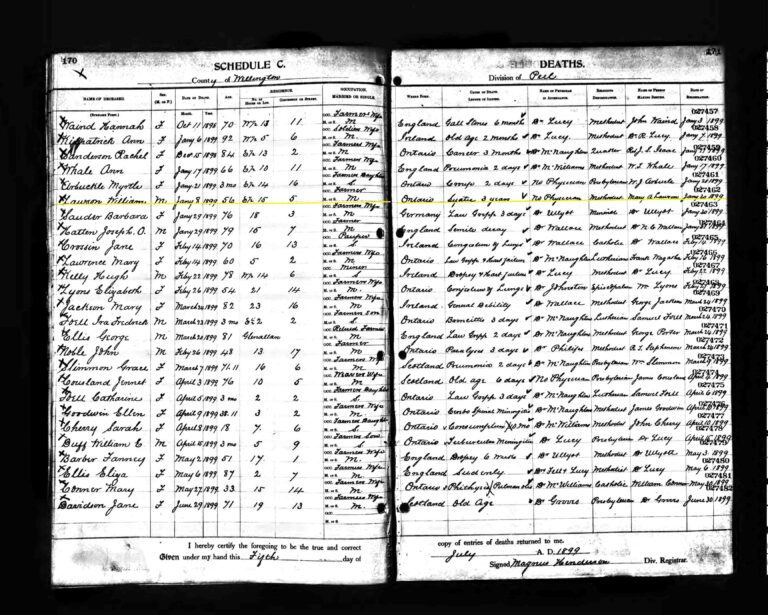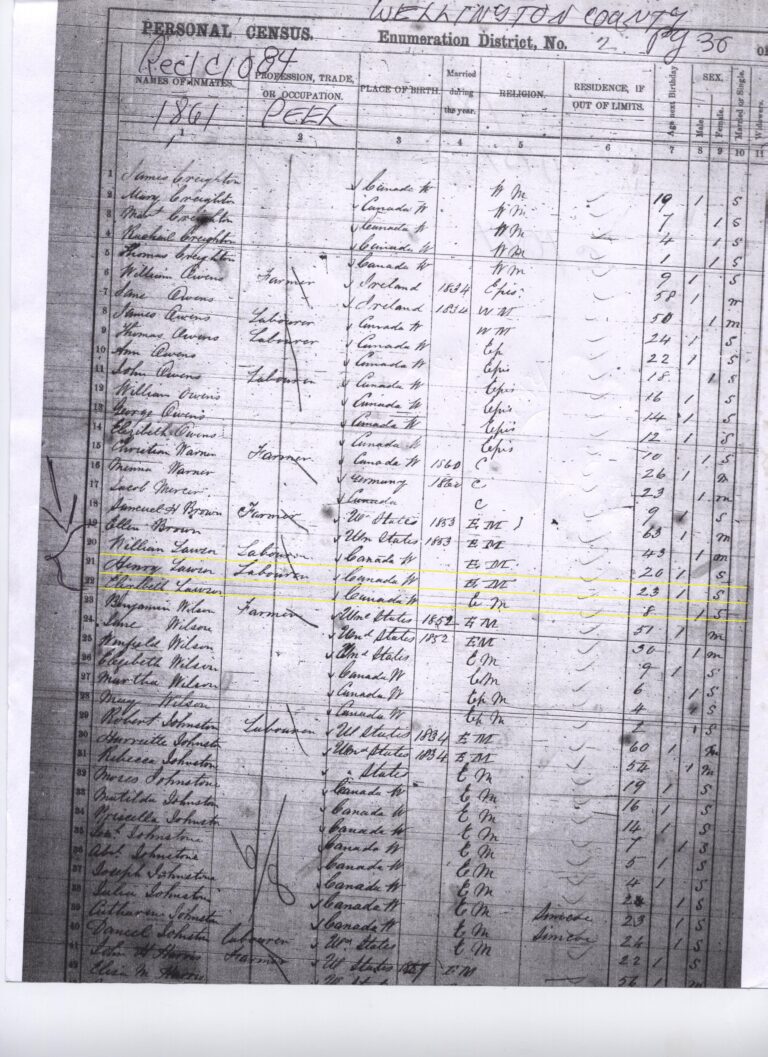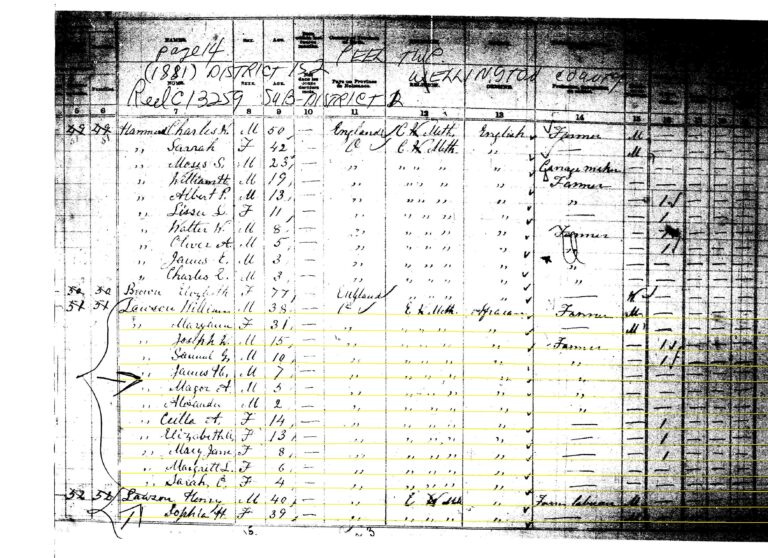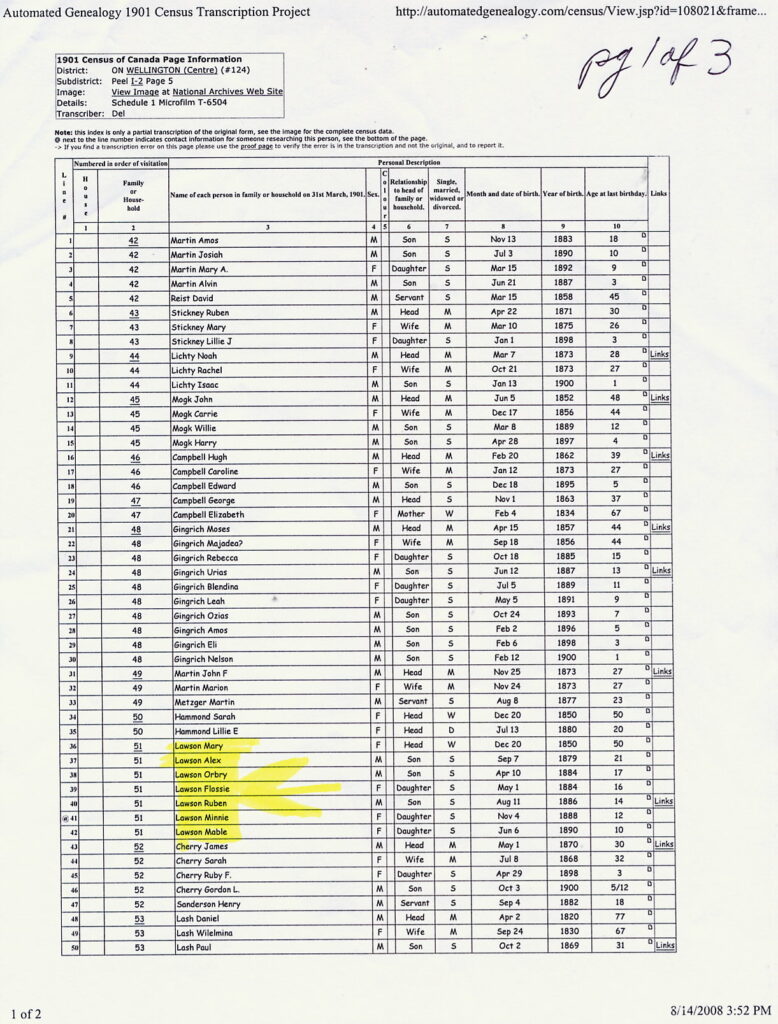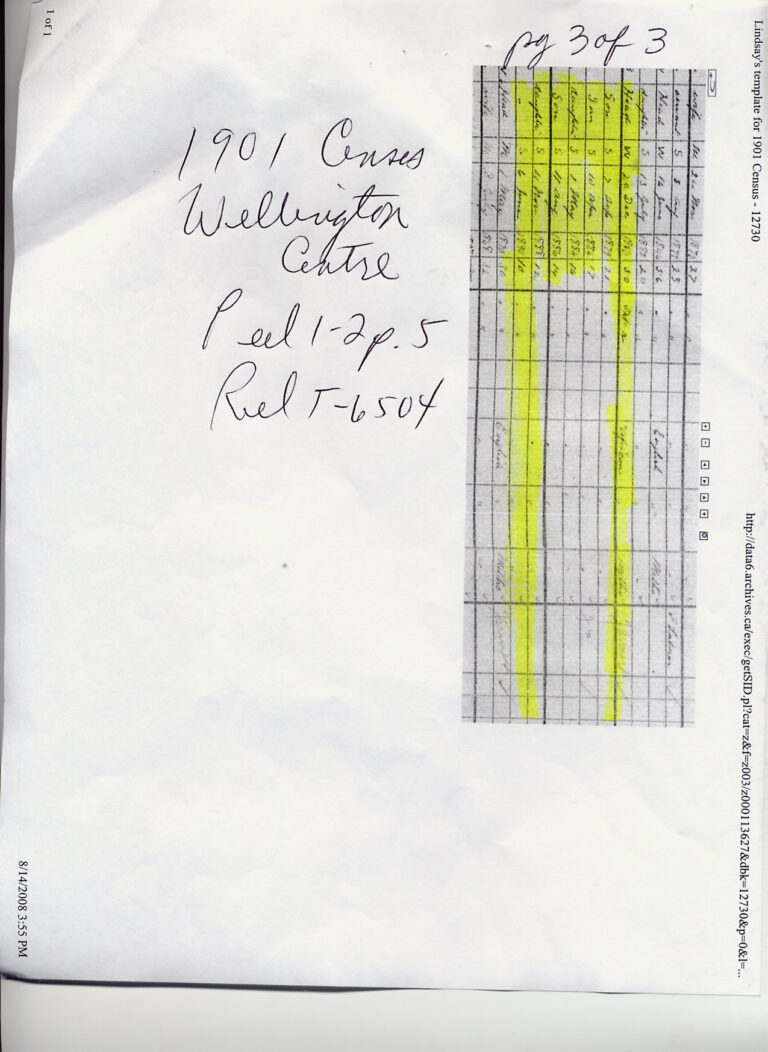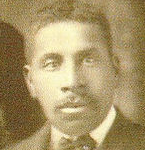
William Lawson
Date of Birth
Abt. 1843
Place of Birth
Ontario, Canada
Towns / Cities Moved Into
Winfield & Peel Township, Wellington County, Ontario, Canada
Known Occupation
Farmer
Religion
Methodist
Spouse
Death Information
Year of death
January 8, 1899
Place of death
Peel Township, Wellington County, Ontario, Canada
Cause of death
Syatic
Obituary

Parents

Henry Dangerfield Lawson

Elizabeth Lawson
Marital Status
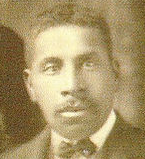

Married Mary Ann Cromwell Lawson
1865
Wellington County, Ontario, Canada
Siblings










Children







Narrative / Story
In the mid-19th century, amidst the burgeoning communities of Ontario, Canada, William Lawson’s story began. Born around 1843, William’s early years were shaped by the rustic beauty and challenges of rural Ontario. As a son of Henry Dangerfield Lawson and Elizabeth Lawson, he grew up in a family rich in love and siblings, with Molly Ann, Henry, Mary, Ester, Samuel, Elizabeth, John, James, Ephriam, and Mary Ann all part of his early tapestry of life.
William’s youth unfolded in a period of significant transformation in Canada. The country, still in its infancy, was grappling with its identity, and the echoes of the Canada (Ontario Boundary) Act of 1889, which expanded Ontario’s boundaries, were felt in every corner of the province. This era was marked by a growing sense of Canadian autonomy, even as ties with the British Empire remained strong.
As William transitioned into adulthood, he embraced the life of a farmer, a profession that demanded resilience and tenacity. Farming in the 19th century was not just a job; it was a way of life that required a deep understanding of the land and the seasons. William’s days were long, filled with the physical labor of tilling the soil, planting seeds, and harvesting crops. This connection to the land was a vital part of his identity.
In the mid-1860s, William’s life took a turn towards family life as he married Mary Ann Cromwell. Their union, likely a reflection of their shared values and aspirations, was blessed with seven children: Cecelia Ellen, Major D., John Alexander, Arbery Dia, Flossie, Minnie, and Mable. The Lawson household, undoubtedly filled with the laughter and cries of children, was a microcosm of the growing Canadian nation – diverse, resilient, and hopeful.
The family’s religious faith, rooted in Methodism, provided a moral compass and a sense of community. In an era when religion played a central role in daily life, their Methodist beliefs likely influenced their values, decisions, and the way they interacted with their community.
Life in Winfield and Peel Township, where the family eventually settled, was not without its challenges. The socio-economic landscape of 19th-century Canada was complex, especially for farmers. Market fluctuations, unpredictable weather, and the physical demands of farming life meant that William and his family would have experienced both prosperous times and periods of hardship.
Despite these challenges, William’s life was a testament to the enduring spirit of the Canadian farmer. His contribution to the agricultural development of Wellington County was significant, helping to shape the region’s agricultural landscape.
Tragically, William’s life was cut short in 1899 due to Sciatica, a condition he battled for three years. His passing in Peel Township marked the end of an era for the Lawson family. He was laid to rest in a place that had been central to his life’s work and journey.
William Lawson’s legacy is not just in the land he cultivated or the children he raised, but in the resilience and perseverance he demonstrated throughout his life. His story is a window into the life of a 19th-century Canadian farmer, a narrative of struggle, faith, and the unyielding bond with the land.
